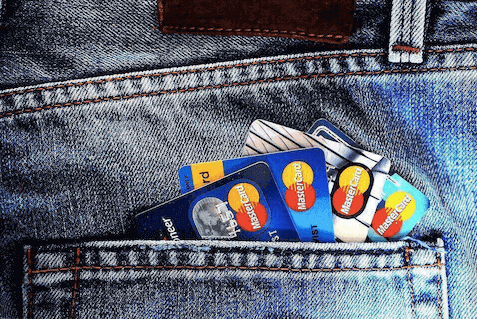The realm of creditworthiness is often shrouded in misconception, with many individuals grappling with the notion that having no credit history may be preferable to having a poor credit score. Indeed it has been found that approximately 26 million Americans are ‘credit invisible’, without any credit history. However, the reality is far more nuanced, and understanding the implications of both scenarios is crucial for informed financial decision-making.
With this in mind, Dollar Hand dissects the myth surrounding the perceived advantages of no credit. This article delves into the complexities of creditworthiness.
What Is The Difference Between No Credit And Bad Credit?
Before delving into the debate, it is essential to grasp the fundamental differences between having no credit history and possessing a poor credit score. No credit history indicates a lack of financial activity, meaning an individual has not established a track record of borrowing and repaying debts. Conversely, bad credit arises when an individual has a history of missed payments, defaults or other negative credit behaviors, resulting in a low credit score.

Is No Credit Truly Better Than Poor Credit?
While the absence of a credit history may seem innocuous at first glance, it can present challenges when attempting to access credit or secure favorable terms on loans and financial products. Lenders rely on credit history as a key determinant of creditworthiness, using it to assess an individual’s likelihood of repaying debts. Without a credit history to evaluate, lenders may view applicants with no credit as higher-risk borrowers, leading to potential difficulties in obtaining credit or securing competitive interest rates.
Furthermore, having no credit history can hinder individuals in other aspects of their financial lives. For example, landlords may require a credit check when renting a property, and employers may conduct credit screenings as part of the hiring process. Without a credit history to demonstrate responsible financial behavior, individuals may encounter obstacles in these areas as well.
What Are The Advantages Of Establishing Credit?
Contrary to the misconception that no credit is preferable, there are numerous advantages to establishing and maintaining a positive credit history. Building a robust credit profile demonstrates financial responsibility and reliability to lenders, increasing the likelihood of approval for credit cards, loans and mortgages. Moreover, a strong credit history can lead to access to better interest rates and more favorable terms on financial products, ultimately saving borrowers money over time.
What Are Some Useful Strategies For Building Credit From Scratch?
For individuals with no credit history, establishing a positive credit profile is a proactive step towards financial empowerment. Several strategies can help jumpstart the credit-building process:
Apply for a Secured Credit Card: Secured credit cards require a cash deposit as collateral and are designed for individuals with limited or no credit history. Responsible use of a secured card can help establish a positive payment history and build credit over time.
Become an Authorized User: Being added as an authorized user on a family member’s or friend’s credit card account can help individuals with no credit history piggyback on their positive credit history. However, it is crucial to choose a responsible primary cardholder who maintains low balances and makes timely payments.
Apply for a Credit-Builder Loan: Credit-builder loans are specifically designed to help individuals build credit from scratch. These loans typically involve borrowing a small amount of money, which is held in a savings account or certificate of deposit (CD) as collateral. As borrowers make timely payments, positive activity is reported to credit bureaus, helping establish a credit history.
What Are The Drawbacks Of Having A Bad Credit Score?
While having no credit history poses its challenges, the repercussions of bad credit can be even more significant. A poor credit score can limit access to credit, result in higher interest rates on loans and credit cards, and even affect employment opportunities and housing options. Additionally, negative information stays on credit reports for years, impacting credit scores and financial prospects in the long term.

How Can I Improve A Bad Credit Score?
For individuals grappling with bad credit, there are proactive steps towards financial recovery that can be taken to improve creditworthiness and rebuild damaged credit. Examples are summarized in the table below:
| Pay Bills on Time: | Timely payment of bills and debts is one of the most effective ways to improve credit scores. Setting up automatic payments or reminders can help ensure bills are paid promptly each month. |
| Reduce Debt: | Paying down existing debt can have a positive impact on credit scores. Focus on paying off high-interest debt first, and consider debt consolidation or negotiation with creditors to make repayment more manageable. |
| Review Credit Reports: | Regularly monitoring credit reports allows individuals to identify and dispute inaccuracies or fraudulent activity that may be dragging down credit scores. Reporting errors to credit bureaus can lead to corrections and improvements in credit scores. |
| Avoid Opening New Accounts: | Opening multiple new credit accounts within a short period can signal financial distress to lenders and negatively impact credit scores. Limit new credit applications and focus on responsible credit management with existing accounts. |
| Seek Professional Assistance: | For individuals struggling to manage debt and improve credit, seeking assistance from credit counseling agencies or financial advisors can provide valuable guidance and support. These professionals can help develop personalized strategies for debt repayment and credit repair, empowering individuals to take control of their financial futures. |
The Bottom Line
In conclusion, the debate surrounding whether no credit is better than bad credit is nuanced and multifaceted. While having no credit history may present challenges in borrowing money and securing favorable terms on loans, the repercussions of bad credit can be far-reaching and detrimental to financial wellbeing.
Ultimately, establishing and maintaining a positive credit history is essential for achieving financial goals and accessing opportunities. By understanding the nuances of creditworthiness and adopting proactive credit-building strategies, individuals can navigate the complexities of the credit landscape and pave the way towards a brighter financial future.
Was this article helpful?
Justine is a full-time writer with lots of expertise and a wealth of experience in the financial world. In particular, she specializes in household income and consumer finance across the United States. Follow her articles for useful advice and top tips, guides on how to save money and lots more.
